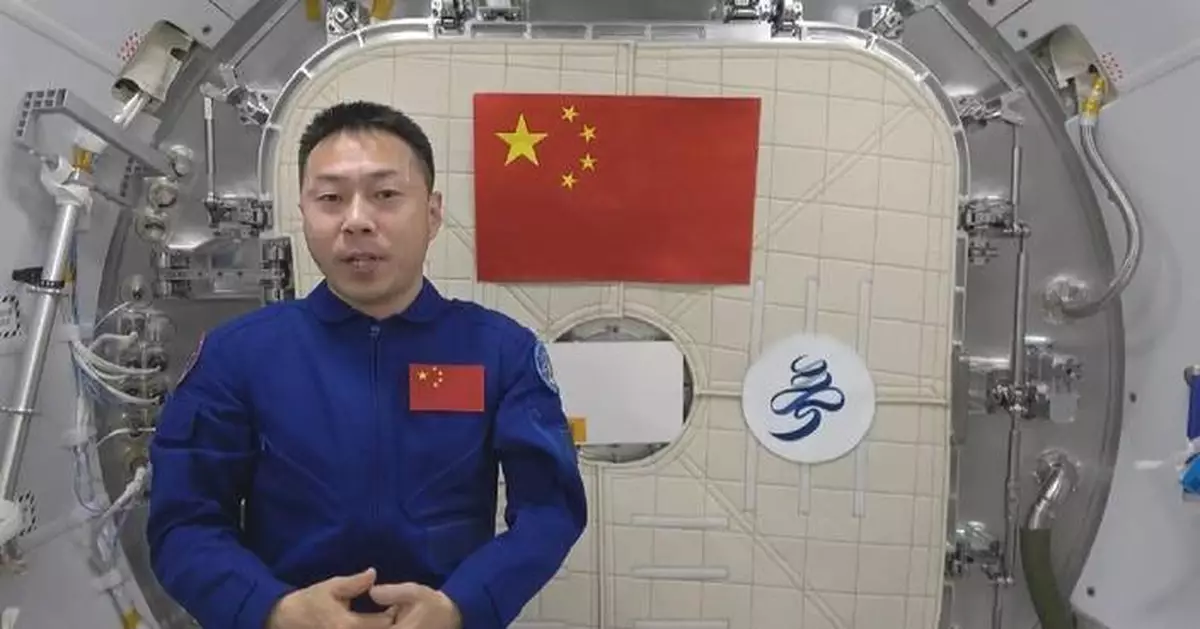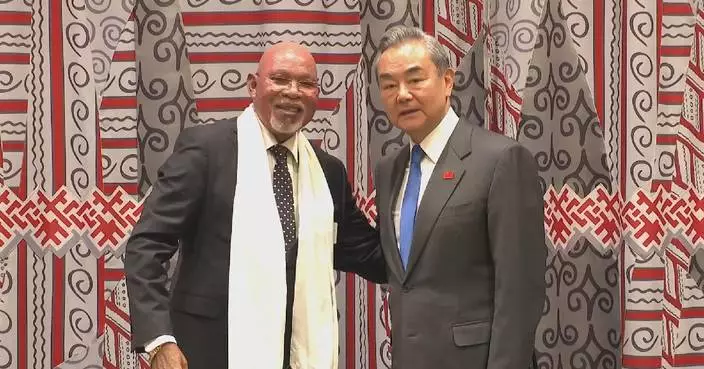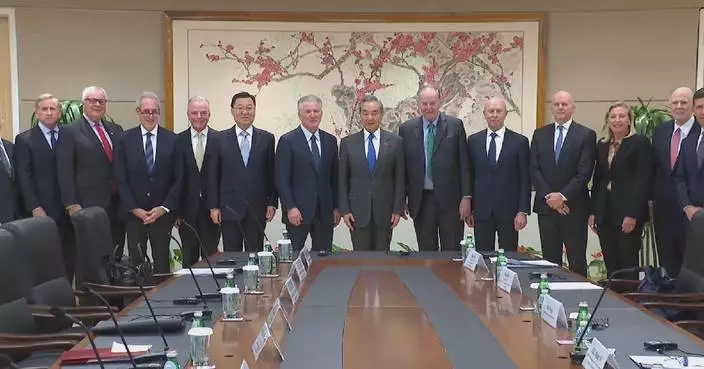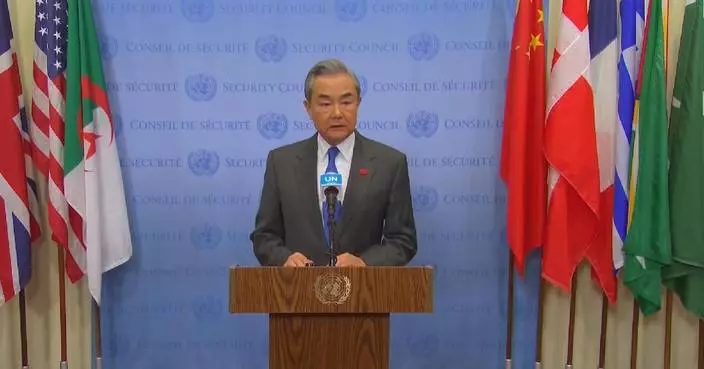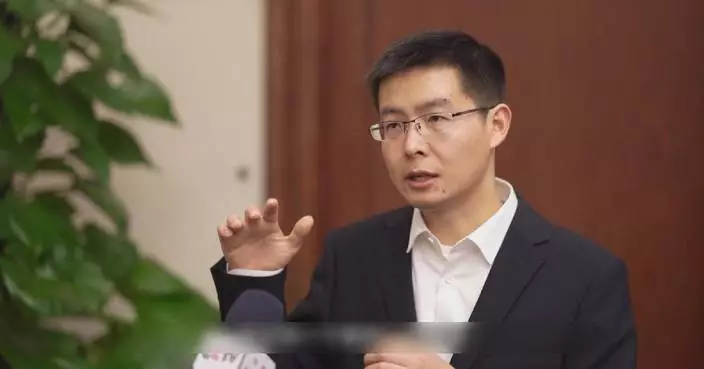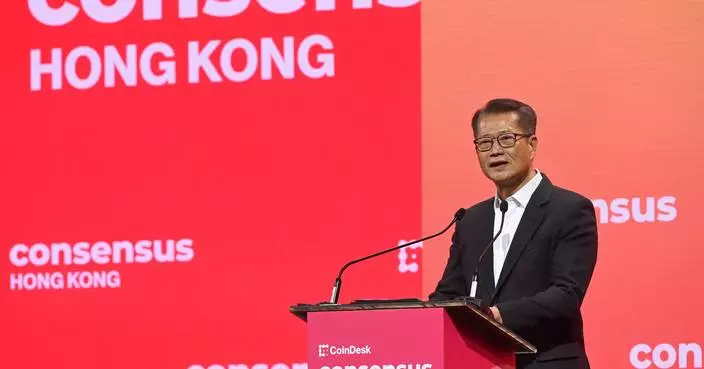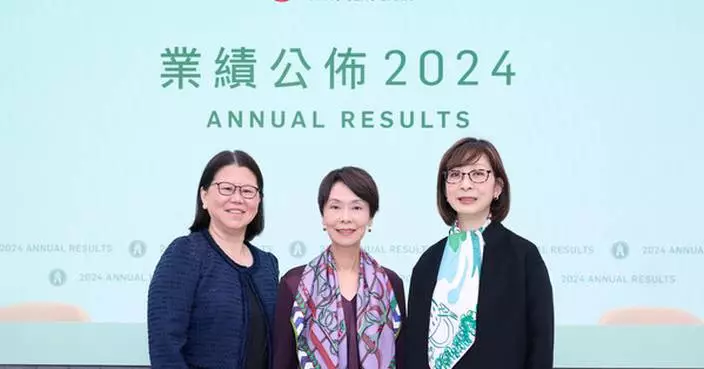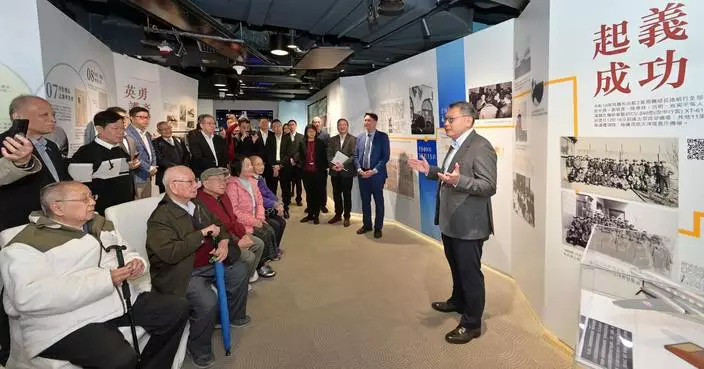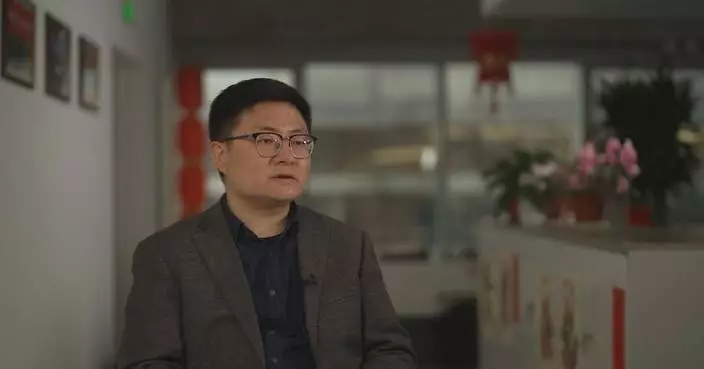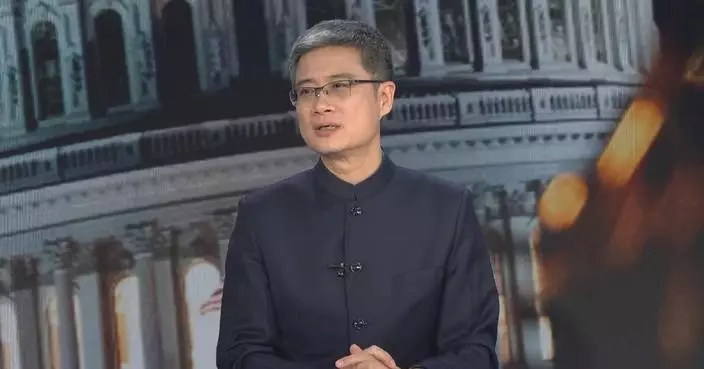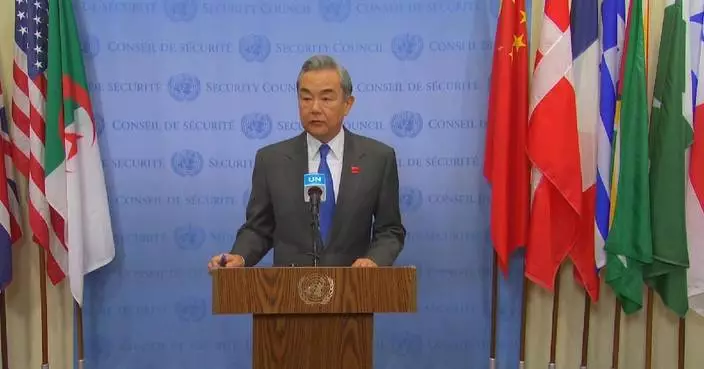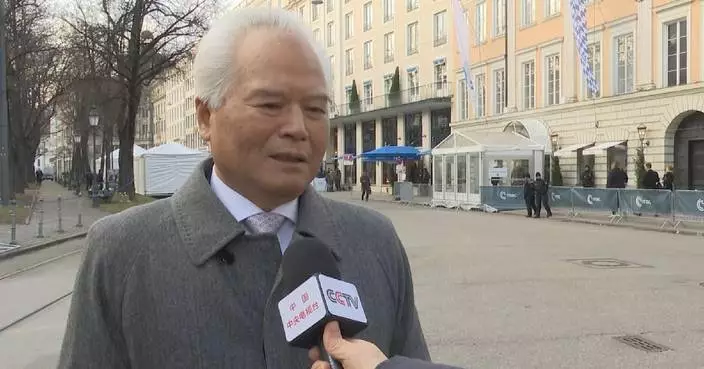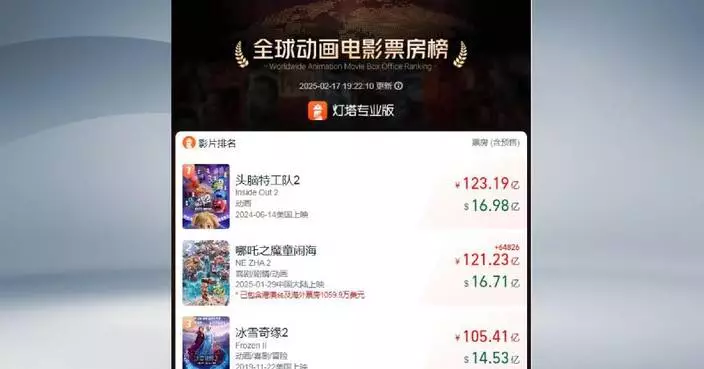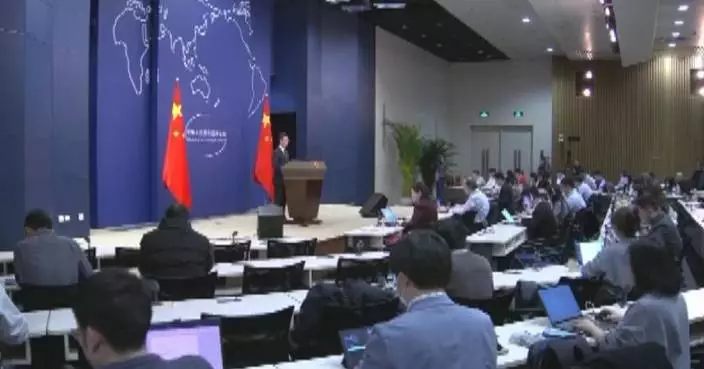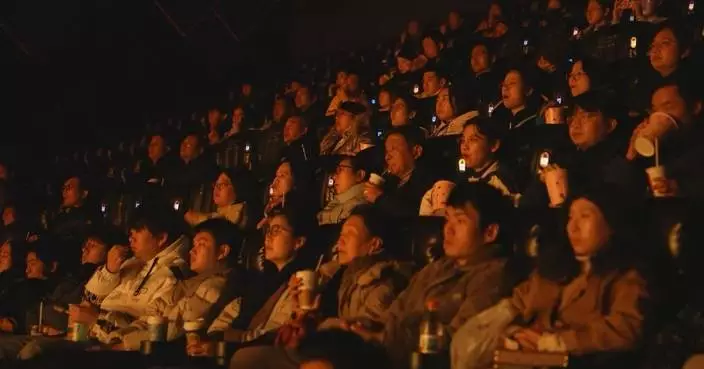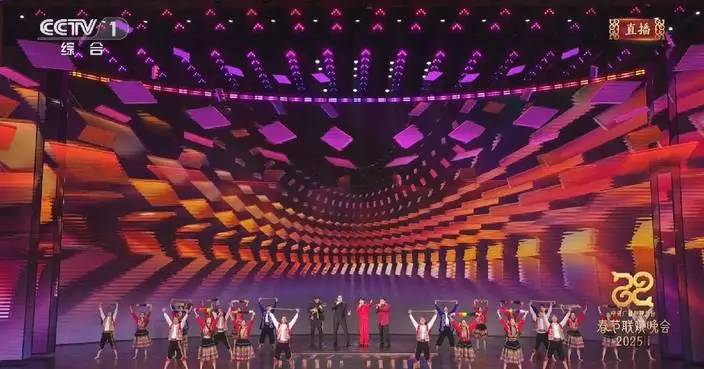Chinese astronaut and commander of the Shenzhou-19 space mission Cai Xuzhe shared his experience of returning to the Chinese space station while delivering a mid-mission progress review.
China launched the Shenzhou-19 crewed spaceship on Oct 30 last year, sending three astronauts, Cai Xuzhe, Song Lingdong and Wang Haoze, to the orbiting space station for a six-month mission.
Cai first joined the journey into space as a crew member of the Shenzhou-14 mission in 2022. He was honored with the title "Heroic Astronaut" for his service and accomplishments during that mission.
As the crew complete the first half of their space mission on Thursday, Cai said it has been heartwarming to return to the space home.
"After two years, I returned to the Chinese space station. It felt like returning to a familiar home, comforting and deeply heartwarming. In the past three months, we have executed the in-orbit rotation with the Shenzhou-18 astronauts, and carried out the scheduled maintenance, daily operations, and health management protocols of the space station platform as planned. In addition, we have completed two EVAs, and carried out multiple drills such as full-system stress emergency response simulations and medical rescue operations training. These exercises have significantly sharpened our ability to handle contingencies, enabling safer and more efficient mission execution," Cai said.
"During the in-orbit period, with the support of ground personnel, we completed medical cytology experiments represented by advanced research on human brain organoids, and launched a new round of material extravehicular exposure experiments. Our crew also routinely replaced related components to ensure the seamless progress of the experiments," Cai said.
"At present, the various space science experiments undertaken by our crew are progressing steadily. According to the plan, we will focus on space science research and technology experiments in the fields of space life sciences, basic physics of microgravity, space material science, aerospace medicine, and next-generation aerospace technologies. Both crew and ground teams will ensure close coordination and meticulous mission execution to guarantee the complete success of our endeavors," Cai said.
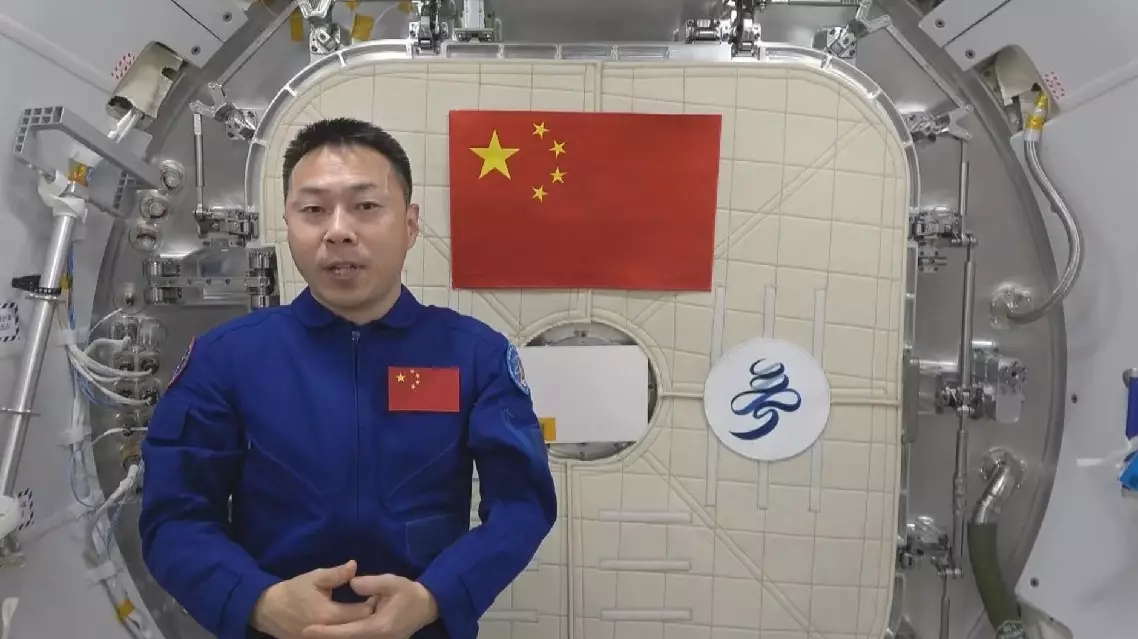
Shenzhou-19 commander reflects on mid-mission progress, says good to be back to space station
U.S. President Donald Trump's style of governance risks turning towards a form of cronyism, which only serves the interests of a select group of individuals, who are close to the president, rather than delivering policies that benefit the U.S. public, according to a scholar.
Stuart Malawer, a distinguished service professor of law and international trade at George Mason University, made the remarks during a recent interview with China Global Television Network (CGTN).
Malawer said the continuous tariff threats from Trump is an example of his coercive personality, which has been influencing his conducts, career, and even the policy making in the White House.
"From the time he was in real estate, in Queens, New York, the time he was in the White House, that's how he's conducted his personal, professional and political life, through threats," he said.
Since taking office to start his second term last month, Trump has signed a series of executive orders and announced a blitz of aggressive trade measures as part of his so-called "America First" agenda.
The latest Trump tariff announcement came on Wednesday with the President saying he intends to impose tariffs of around 25 percent on auto imports.
On Feb. 10, Trump raised tariffs on aluminum from 10 percent to 25 percent and ended exemptions and exclusions for steel and aluminum tariffs.
These tariff policies have sparked widespread opposition, with analysts saying the measures undermine the rules-based multilateral trading system, impact the global supply chain, hinder global economic recovery, and harm the interests of all parties.
Noting that Trump's tariffs will cause even higher inflation at home and force the ordinary Americans to pay for the price, Malawer warned the decision to impose tariffs on certain goods can potentially leave room for a small group of elites to influence decision making in the White House, thus creating cronyism and lack of transparency in the U.S. political system.
"What it really does is create a cronyism and a political system where the interests of particular parties, which rival between themselves, will try to influence the governments and political actions. So, the answer to your question, yes, it's going to favor not just his (Trump's) political friends, but it will go back in a sense to the past of where it's cronyism, not really public policy objectives that are negotiated and discussed in the open," he said.

Trump's governance style risks creating cronyism: scholar



